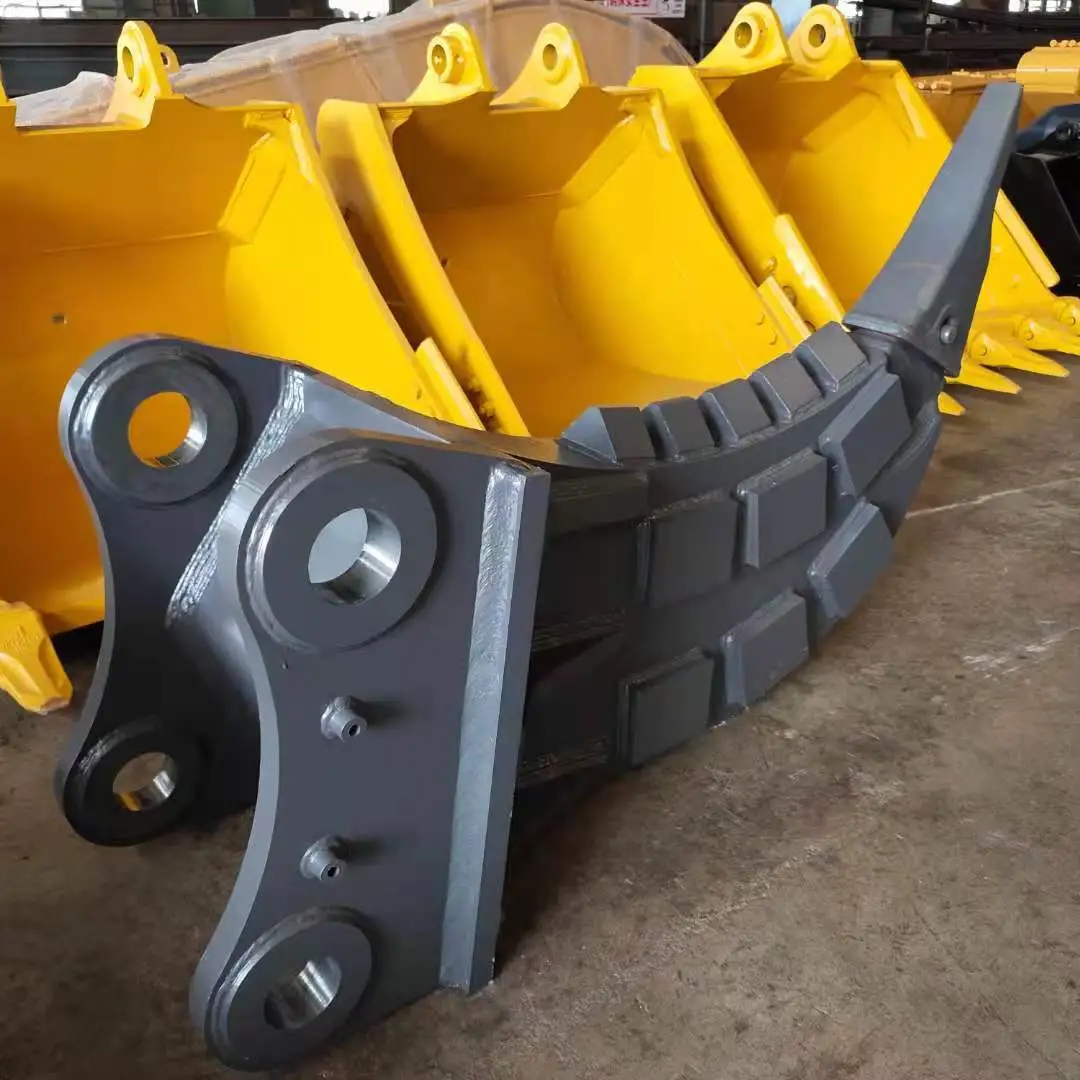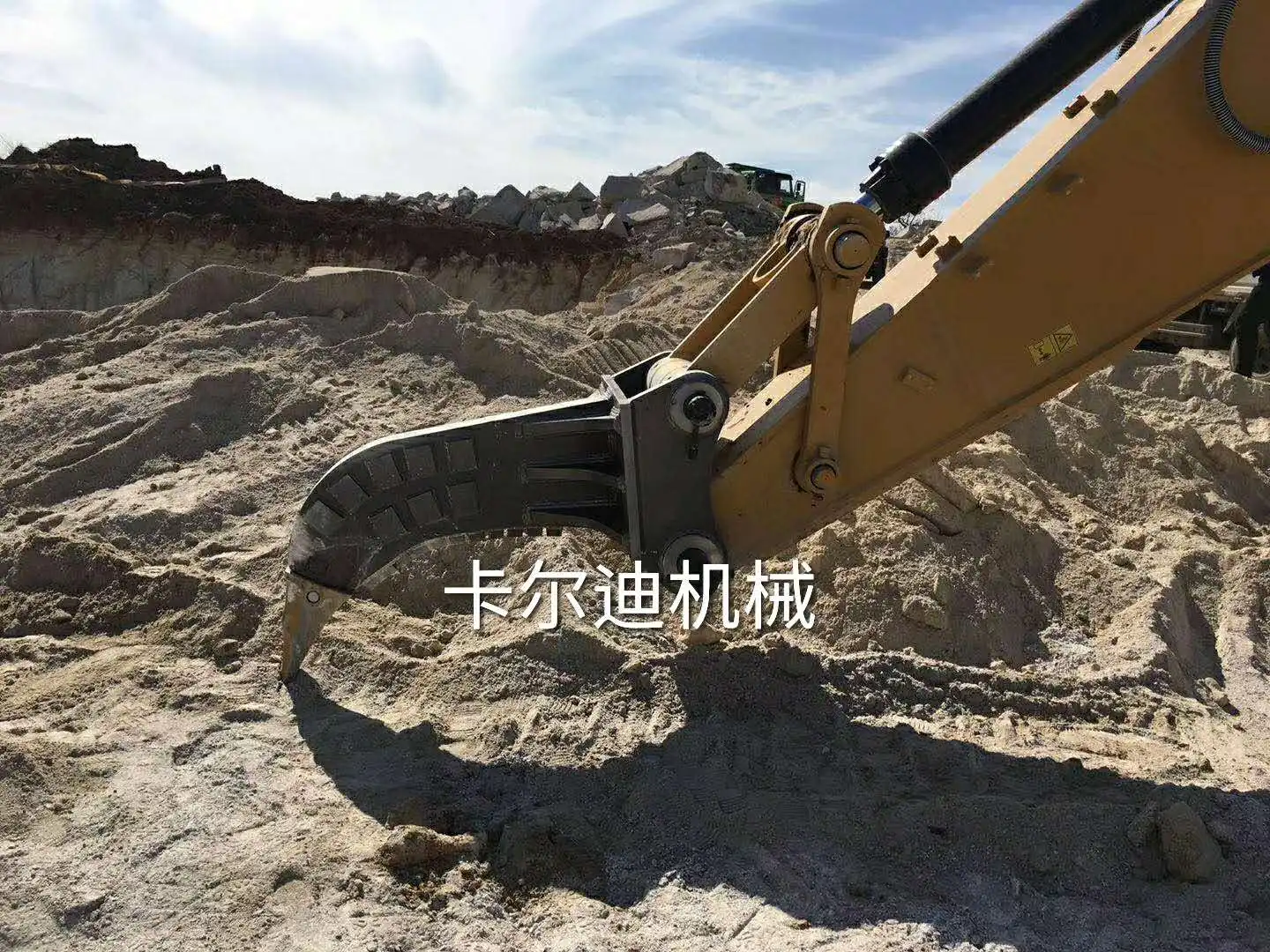Can a small excavator use a ripper?
Yes, a small excavator can indeed use a ripper. Excavator rippers, specially designed for compact machines, have become increasingly popular in various industries. These attachments enable mini excavators to tackle tasks traditionally reserved for larger equipment, enhancing their versatility and efficiency. By utilizing a ripper, small excavators can break up compacted soil, remove roots, and even handle light rock excavation, making them invaluable tools for landscaping, construction, and utility work in confined spaces.
Mini excavator ripper options and capabilities
Compact ripper attachments for mini excavators
The market offers a wide range of compact ripper attachments specifically engineered for mini excavators. These excavator rippers are designed to maximize the potential of small machines, allowing them to perform tasks that were once impossible without larger equipment. Manufacturers have developed rippers that perfectly match the hydraulic capabilities and weight restrictions of mini excavators, ensuring optimal performance and safety.
These compact rippers come in various sizes and configurations to suit different mini excavator models. Some feature single-tooth designs for focused penetration, while others offer multiple teeth for broader coverage. The choice depends on the specific job requirements and the excavator's specifications.
Hydraulic power and ripper compatibility
One crucial aspect of using a ripper on a small excavator is ensuring compatibility with the machine's hydraulic system. Most modern mini excavators are equipped with auxiliary hydraulic lines that can power various attachments, including rippers. However, it's essential to verify that the excavator's hydraulic flow and pressure match the ripper's requirements.
Many compact rippers are designed to operate efficiently with the standard hydraulic output of mini excavators. Some advanced models even feature integrated hydraulic systems that optimize power distribution, allowing for smoother operation and reduced wear on the excavator's components.
Versatility of mini excavator rippers in tight spaces
The combination of a mini excavator and a compact ripper excels in confined areas where larger machines can't operate. This setup is particularly valuable in urban construction sites, backyard renovations, and utility maintenance in densely populated areas. The small footprint of the mini excavator, coupled with the precise control of the ripper attachment, allows operators to work around obstacles and in tight corners with minimal disruption to the surrounding environment.
Moreover, the maneuverability of mini excavators equipped with rippers makes them ideal for tasks that require frequent repositioning. Operators can quickly move between work areas, enhancing overall project efficiency and reducing downtime.

Lightweight Structure
Materials used in mini excavator ripper construction
The effectiveness of mini excavator rippers largely depends on their construction materials. Manufacturers employ high-strength, low-weight alloys to create rippers that are both durable and compatible with smaller machines. Common materials include hardened steel for the tooth or teeth, often with tungsten carbide tips for enhanced wear resistance.
The main body of the ripper is typically crafted from high-grade steel, carefully engineered to withstand the stresses of ripping operations while maintaining a weight that doesn't overburden the mini excavator. Some advanced models incorporate composite materials in non-critical areas to further reduce weight without compromising strength.
Weight considerations for small machine stability
When attaching a ripper to a mini excavator, weight distribution becomes a critical factor. The additional weight at the end of the boom can affect the machine's stability, especially when working on uneven terrain or at maximum reach. To address this, ripper designers focus on creating attachments that complement the excavator's center of gravity.
Many mini excavator rippers feature a compact profile that keeps the weight close to the machine's body. This design approach helps maintain stability during operation, allowing the excavator to work efficiently without the risk of tipping. Operators must still be mindful of the machine's load capacity and adjust their working techniques accordingly.
Portable ripper options for increased mobility
For projects that require frequent transportation between sites, portable ripper options have emerged as a popular choice. These lightweight attachments are designed for easy installation and removal, allowing operators to quickly adapt their mini excavators to different tasks.
Some portable rippers feature modular designs that can be disassembled for transport and reassembled on-site. This flexibility is particularly valuable for rental companies and contractors who need to maximize the versatility of their equipment across various job sites.

Small-Scale Tasks
Breaking up compacted soil in landscaping projects
Mini excavators equipped with rippers excel in landscaping applications, particularly when dealing with compacted soil. In areas where traditional tilling methods are impractical or ineffective, a small excavator with a ripper attachment can efficiently break up hard ground, preparing it for planting or further landscaping work.
The precision control offered by mini excavators allows landscapers to work around existing plants, irrigation systems, and hardscaping elements without causing damage. This capability is especially valuable in renovation projects where preserving certain landscape features is essential.
Removing tree roots and stumps in confined areas
Tree root and stump removal in tight spaces is another task where mini excavators with rippers shine. The compact size of these machines allows them to access areas between buildings or in densely planted gardens where larger equipment can't fit. The ripper attachment can effectively break up root systems and loosen stumps, making their removal much easier and less labor-intensive.
This application is particularly useful in urban tree management, where the careful removal of dead or problematic trees is necessary without disturbing surrounding structures or vegetation. The mini excavator's maneuverability combined with the ripper's power provides an efficient solution for these challenging tasks.
Trenching applications for mini excavator rippers
While not their primary function, mini excavator rippers can be valuable tools for certain trenching applications. In situations where the ground is too hard for standard bucket excavation, a ripper can be used to loosen the soil first. This pre-ripping process can significantly improve trenching efficiency, especially in areas with compacted clay or rocky soil conditions.
For utility installation projects in residential areas or other confined spaces, the combination of a mini excavator and ripper attachment offers a less disruptive alternative to larger trenching equipment. This setup allows for precise control over the trench depth and width, minimizing the impact on surrounding landscapes.
Small excavators can indeed use rippers effectively, expanding their capabilities and versatility across various applications. From landscaping to light construction work, these compact powerhouses equipped with rippers offer an efficient solution for tasks in confined spaces. Their lightweight structure and ability to handle small-scale jobs make them invaluable tools for professionals in multiple industries. As technology advances, we can expect even more innovative ripper designs that will further enhance the capabilities of mini excavators, solidifying their place as essential equipment in modern construction and landscaping projects.

FAQ
1. What is the maximum depth a mini excavator ripper can reach?
The maximum depth depends on the specific model of the mini excavator and the ripper attachment. Generally, mini excavator rippers can reach depths between 12 to 24 inches, but some specialized models may go deeper.
2. Can a mini excavator ripper handle rocky terrain?
Many mini excavator rippers are designed to handle light to medium rock conditions. However, for extremely hard rock or large boulders, a larger machine with a more powerful ripper might be necessary.
3. How does using a ripper affect fuel consumption in mini excavators?
Using a ripper can increase fuel consumption due to the additional power required. However, the increase is usually minimal, and the efficiency gained in completing tasks often outweighs the extra fuel cost.
4. Are special operator skills required to use a mini excavator with a ripper?
While basic excavator operation skills are sufficient, operators may need some practice to use the ripper effectively. Proper training on ripper techniques can significantly improve efficiency and reduce wear on the equipment.
5. How often should the teeth on a mini excavator ripper be replaced?
The frequency of teeth replacement depends on the material being ripped and the intensity of use. In general, teeth should be inspected regularly and replaced when they show significant wear to maintain optimal performance.
Excavator Ripper Factory
At Tiannuo Machinery, we specialize in manufacturing high-quality excavator rippers and a wide range of construction equipment accessories. Our product line includes railway maintenance equipment, excavator modification equipment, engineering arms, and various excavator accessories. We pride ourselves on delivering innovative solutions that enhance the capabilities of your machinery, whether you're in the railway, construction, mining, or landscaping industry. Our rippers are designed for optimal performance, durability, and efficiency, suitable for various tasks from breaking up compacted soil to removing obstacles in confined spaces. For more information about our products, contact us at rich@stnd-machinery.com.
References
- Smith, J. (2022). "Mini Excavator Attachments: Expanding Versatility". Construction Equipment Magazine, 56(4), 78-82.
- Johnson, R. (2021). "Compact Power: The Rise of Mini Excavator Rippers". Compact Equipment, 33(2), 45-49.
- Brown, A. (2023). "Innovations in Small-Scale Excavation Technology". Equipment World, 45(6), 112-117.
- Davis, M. (2022). "Choosing the Right Ripper for Your Mini Excavator". Mini Excavator HQ, 12(3), 22-26.
- Wilson, E. (2023). "Maximizing Efficiency with Mini Excavator Attachments". Excavator Zone, 28(1), 34-38.
- Taylor, S. (2021). "Urban Construction: The Role of Compact Equipment". Construction Pros, 39(5), 67-71.
About Author: Arm
Arm is a leading expert in the field of specialized construction and railway maintenance equipment, working at Tiannuo Company.

